Ghana
Agenda for Change members working on systems approaches
Please note this is a summary of information. You can learn more on the CRS and WaterAid websites.
Catholic Relief Services (CRS) works to improve sanitation coverage in schools and health facilities by supporting school health clubs and sanitation advocacy groups to establish safe water points, construct latrines and urinals, and create tippy tap handwashing facilities. CRS continues to integrate its Savings and Internal Lending Communities (SILC) programming into the WASH sector, which helps create a supportive environment for sustained behavior change.
WaterAid, with the support of the Conrad N. Hilton Foundation and other partners, is supporting the development of district-wide approaches (DWA) across Ghana. The DWA concept puts metropolitan, municipal, and district assemblies in charge of development, with increased responsibility for extending WASH services to everyone within their districts, including the most marginalized people. Under this process, WaterAid and other development actors will provide technical support where necessary.
Systems strengthening activities
CRS works in urban and rural communities, using schools and healthcare facilities as effective platforms to teach best WASH practices. The focus has been to end open defecation and help build or improve latrines and toilets. Promoting handwashing and good hygiene leads to lower death rates and the reduction of malaria, diarrhea, cholera, and other preventable diseases. CRS and local government officials work together to rehabilitate public toilets and train facility operators. This effort will reach around 255,500 people in Tamale city. Other work focuses on educational campaigns and supporting sanitation entrepreneurs to develop, supply, and market sanitation products. Constructive engagement with government and non-government actors—such as religious and traditional groups—will be key to establishing successful, long-lasting interventions.
WaterAid is aiming to make universal WASH coverage a reality through district-wide approach programming, and also works to develop a strong, proactive evidence-based policy influencing agenda. This requires addressing both the demand and supply sides of WASH sector issues at multiple levels, including rural, urban, peri-urban, and national. The main goal is to achieve universal WASH in the districts where they work and to reduce social and WASH-related inequalities, and poverty linked to the denial of WASH as a basic human right.
Country Collaboration Representative

Ewurabena Yanyi-Akofur
Bio
Ewurabena has 12 years of experience in development and a proven track record of providing leadership, technical guidance, and oversight on integrated and multi-sectoral donor-funded programs for greater impact.
She has a personal passion for leveraging the power of partnerships – among governments, the philanthropic community, and the private sector – to utilize market-based approaches to support inclusive and sustainable rural development. She has research/learning interests in how projects can lead to positive systems change; change in the underlying contextual structures, relationships, values, and incentives for the benefit of low-income families/communities.
Ewurabena has a degree in Development Policy Planning and a Master’s degree in Development Studies.
Other partners
Entities of the Central Government
National Development Planning Commission
Local Governments
Community Water and Sanitation Agency (CWSA), the Asutifi North District Assembly, local chiefs
All others
Conrad N. Hilton Foundation, Safe Water Network, World Vision International, Community Water and Sanitation Agency (CWSA), Desert Research Institute
Accomplishments
- After participating in Savings and Internal Lending Communities (SILC), households are more likely to pay for potable water, leading to generation of funds for operation and maintenance of boreholes, access loans for latrine construction, pay for sanitary products for their adolescent girls, and contribute to maintenance of school latrines, among other things.
- Dissemination of WASH behavior change messages on good sanitation and hygiene practices, provision to community schools of basic WASH products, and repair of minor damages to the school latrines and boreholes was paid for using community members’ SILC social funds.
- Raising the priority of WASH issues is a political imperative in each district. In Bongo district, there was a decision to appeal for outside support to deal with fluoride in groundwater.
Challenges
- The promotion of sanitation is still not strong enough to eradicate open defecation and ensure that every household has its own latrine. Hygiene, especially handwashing with soap, is essential in this era of COVID-19 but is impossible to practice in the absence of facilities.
- As open defecation is eradicated and populations in peri-urban and urban areas grow, the need for a strategy to deal with the contents of pit latrines will become pressing, as the technology and safe practice for doing so have not yet been developed. This longer-term threat needs national attention.
How strong are the systems?
To determine how well systems are working, we rely on data derived from Building Blocks, which are manageable ‘sub-systems’ that can be supported and strengthened. Certain building blocks may be more strongly developed or applied at district or national level. Interactions between building blocks are essential.
National level
Building Block
Water
Sanitation
Hygiene
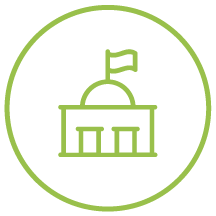
Institutional Arrangements & Coordination
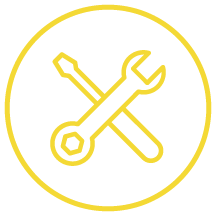
Service Delivery Infrastructure
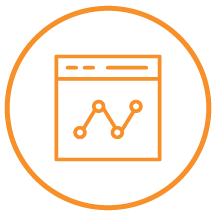
Monitoring

Planning
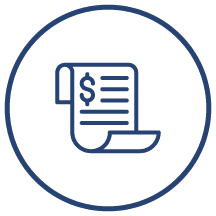
Finance
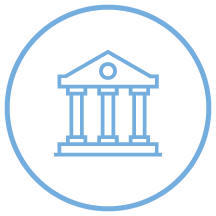
Regulation & Accountability
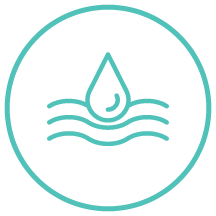
Water Resource Management
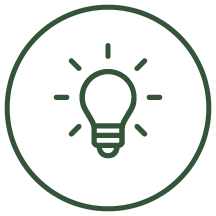
Learning & Adaptation
National
Local
National

PDF Download
WaterAid Ghana & Ghana Youth Environment Movement Joint Position Paper on Water Sanitation and Hygiene Based Climate Adaptation Strategies



Local

PDF Download
Community-based Savings and Loans Schemes for Improved Livelihoods and WASH Service Delivery – the Northern Ghana Experience


PDF Download
Rethinking decentralisation of WASH services in Ghana: Strengthening local assemblies to deliver services for all

PDF Download
Water, Sanitation, and Hygiene (WASH) Master Plan Asutifi North District, Ghana


